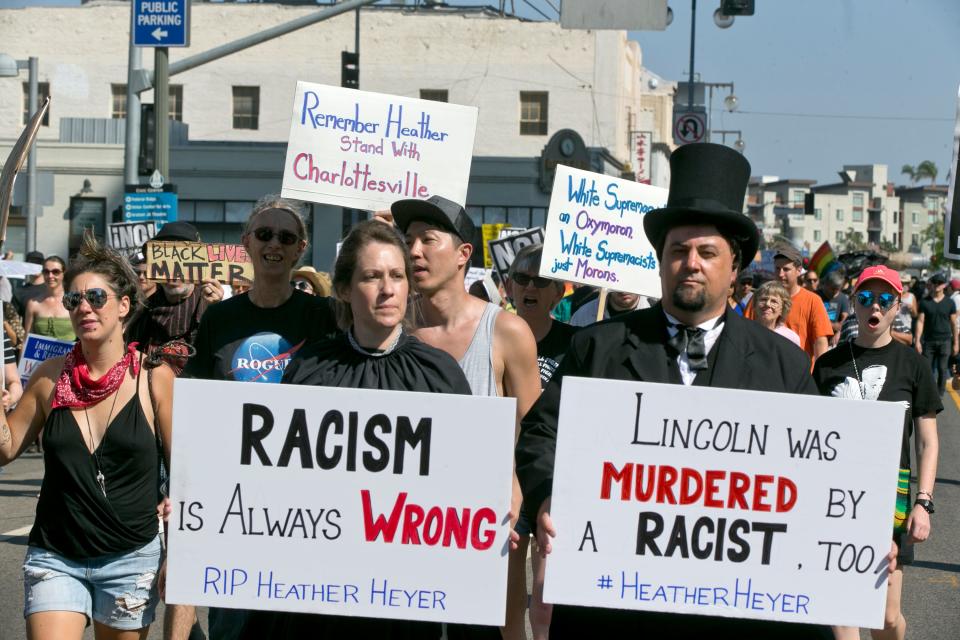If Americans want to eliminate racism, we must change our society | Opinion
Many white Americans talk as if racism died decades ago.
Today few call Black men “boy” or assert that Black people are stupid, lazy, and stink. Old-fashioned racism still exists, for sure, but it is unfashionable — like Amos ‘n Andy and blackface. Its adherents are dismissed as uneducated rednecks, throwbacks to the time when George Wallace was king.
Racism, however, is alive and kicking, albeit in different forms. In some respects, these forms are less virulent—certainly Black people are less likely to be lynched on the courthouse lawn. However, these shape economic, political, and social institutions in ways that systematically disadvantage African Americans.
These forms are tougher to spot, and therefore, tougher to eradicate. Especially since many think all forms of racism are equal. However, we should distinguish forms along three dimensions.
Hear more Tennessee Voices: Get the weekly opinion newsletter for insightful and thought provoking columns.
The three dimensions of racism

Scope: Discriminating against a range of behaviors is more detrimental than discriminating against a few. It is bad to limit where people live; it is worse to also forbid them from eating in many restaurants, to bar them from gainful employment, or charge them exorbitant home mortgage rates.
Power: Discrimination is more harmful when perpetrators are powerful. White people in Western industrialized societies have long held political, social, and economic power.
History: Discrimination occurring over centuries is more detrimental than that occurring over years. Patterns of discrimination create self-perpetuating social, cultural, and political institutions prolonging its effects.
These differences show why seemingly “similar” acts of racism harm African Americans more than the “same” actions would harm white people.
This might seem so obvious as to not require stating. Unfortunately, it is too easily forgotten. Forgetting it leads to bizarre conclusions. Someone might claim that white people have more pressure to succeed than Black people. Ever were this claim partly true, it would be seriously misleading.
Sign up for Latino Tennessee Voices newsletter:Read compelling stories for and with the Latino community in Tennessee.
Sign up for Black Tennessee Voices newsletter:Read compelling columns by Black writers from across Tennessee.
Would you rather be the child of a CEO or garbage collector?
It is also true that the children of a 17th century duke and a 21st century CEO are expected to succeed in ways children of serfs and garbage collectors are not. However, the child of the serf and the garbage collector would gladly trade places with the child of the duke and the CEO. The latter’s “burdens” are rarely onerous and never unjust. Whatever burdens they have, they have because of previous discrimination against African-Americans. If they wish to be rid of these burdens they can. Black people lack this power. The system benefits whites as a group.
Understanding the context in which racism occurred helps explain why we should not think of it as a wrong against individuals. Racist acts are not directed at specific individuals because of who they are as individuals. They are directed at people because of their race.
A minority citizen who witnesses those acts is still harmed by them. She will see the acts as an attack on the entire race. Rightly so. Consider the following analogue. Some Northerners claim Southerners are ignorant. If you are a Southerner and you hear Northerners complain about “stupid Southerners,” you will feel attacked even if the comments are not directed at you.

It wouldn’t help if you are treated as an exception (“Don’t worry; you’re a smart Southerner.”) Moreover, you would likely have this reaction although our society does not define people by their geographical locale. However, society has — and does — define people by their race. If we want racism to die, we must change our society.
Hugh LaFollette is Emeritus Cole Chair in Ethics and professor of philosophy at the University of South Florida. He lives in Knoxville, Tennessee.
This article originally appeared on Nashville Tennessean: Ending racism in America means changing our society

